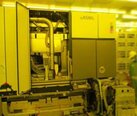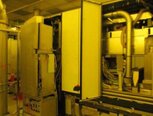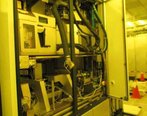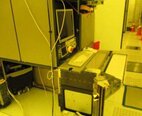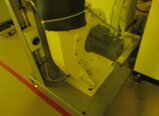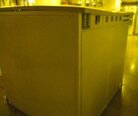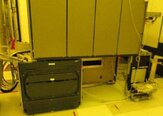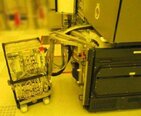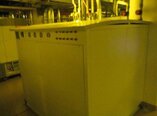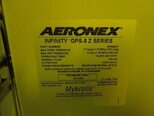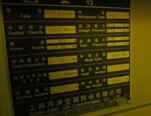中古 ASML Twinscan XT 1250D #9228718 を販売中
URL がコピーされました!
タップしてズーム
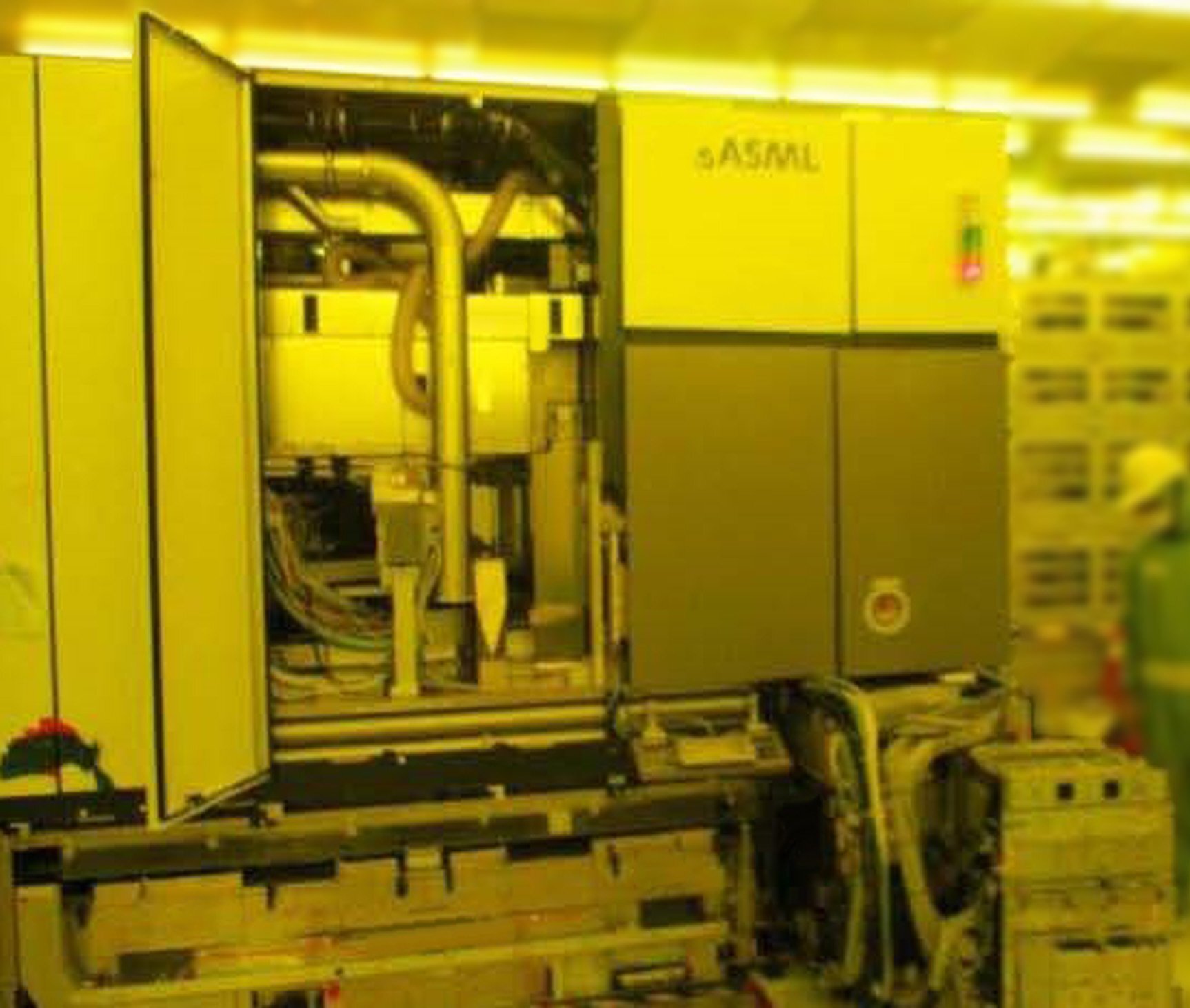

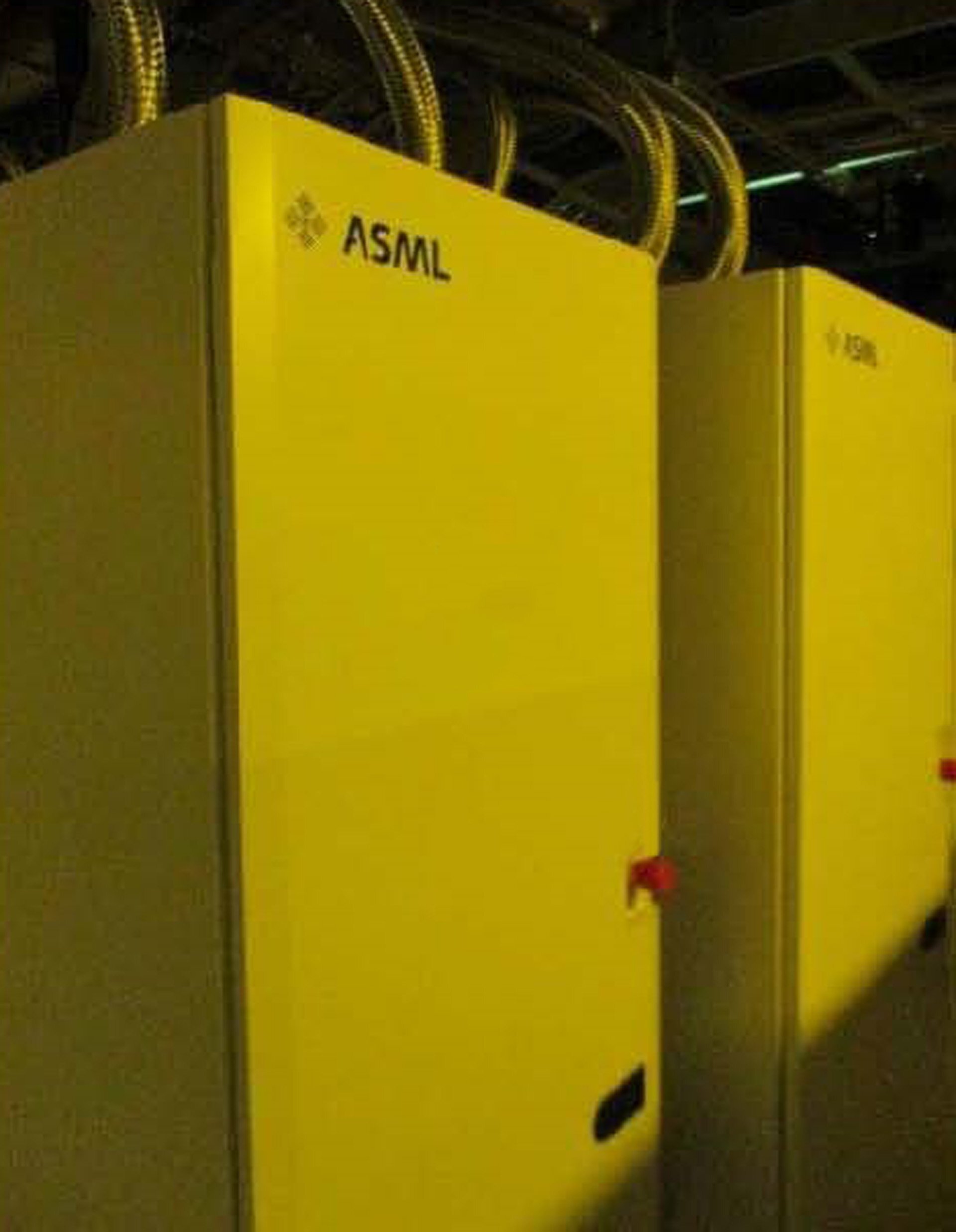

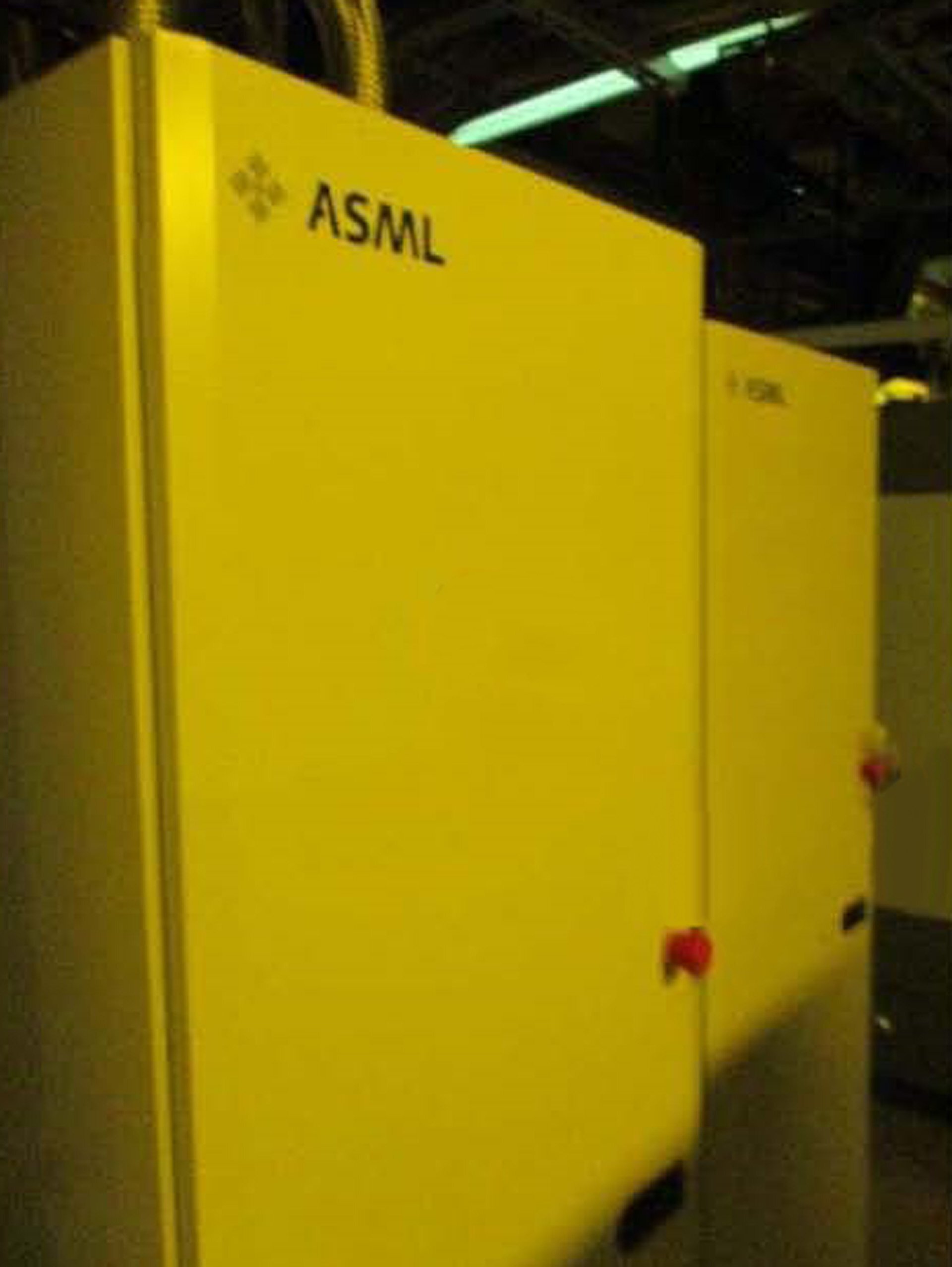

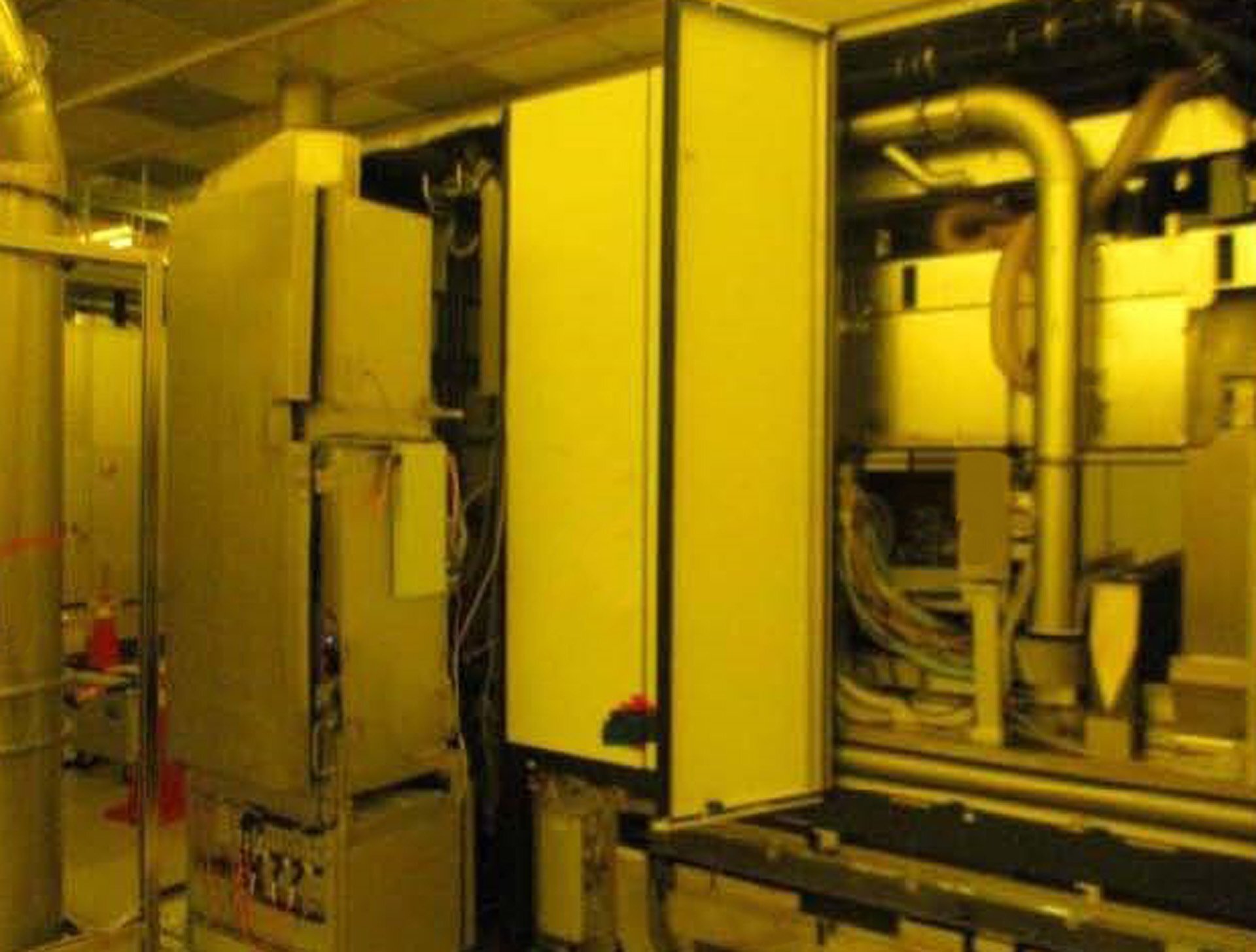

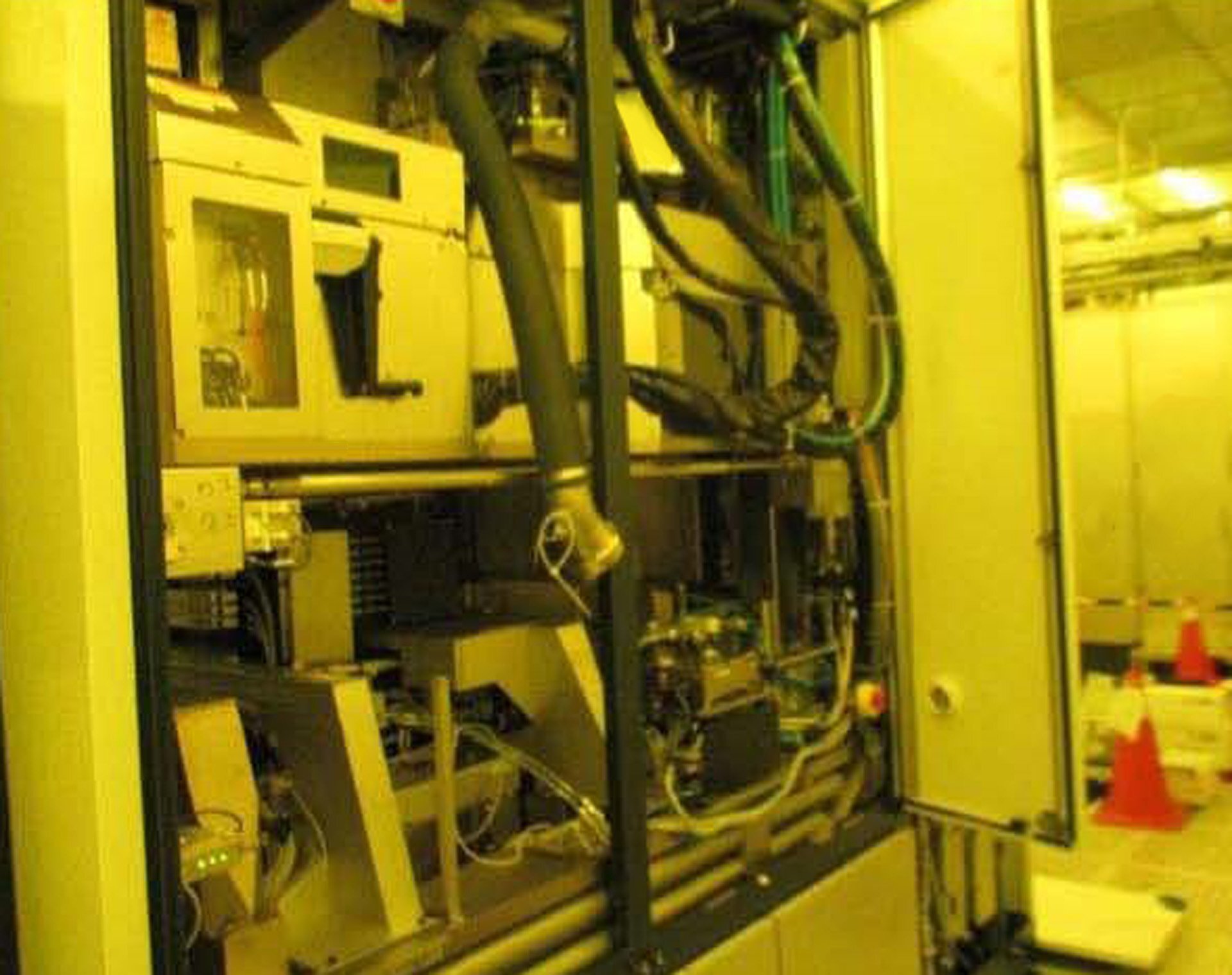

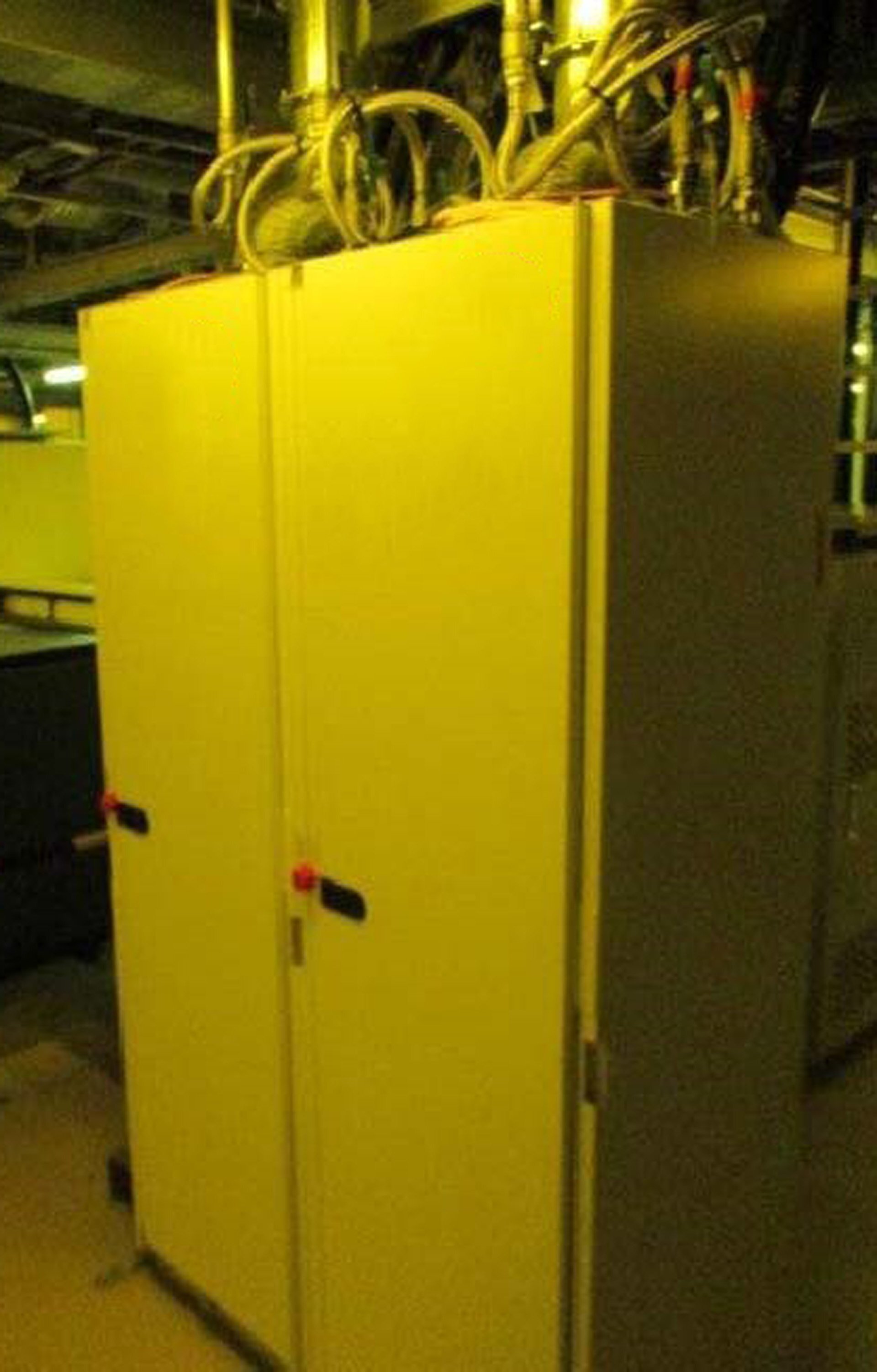

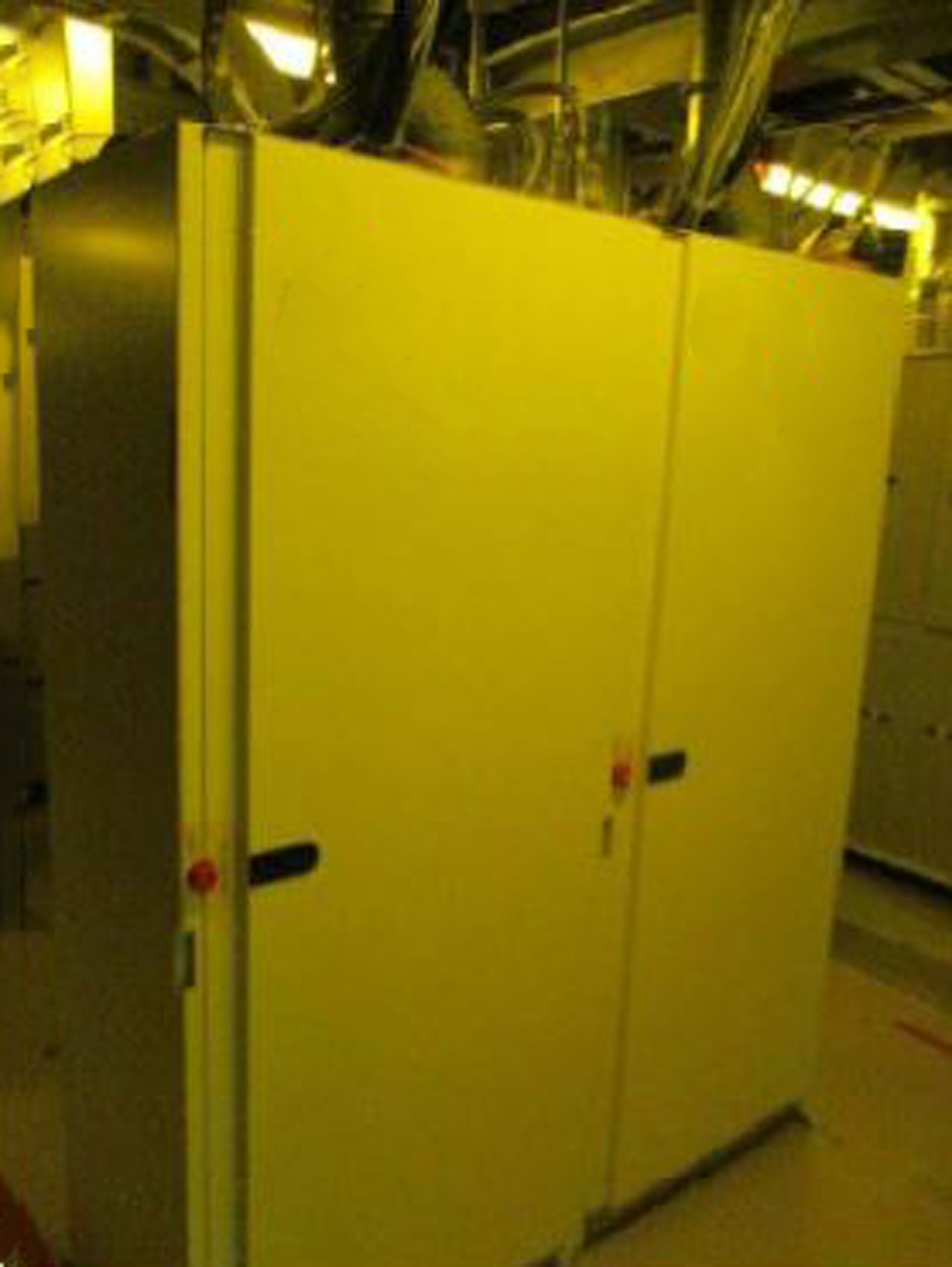

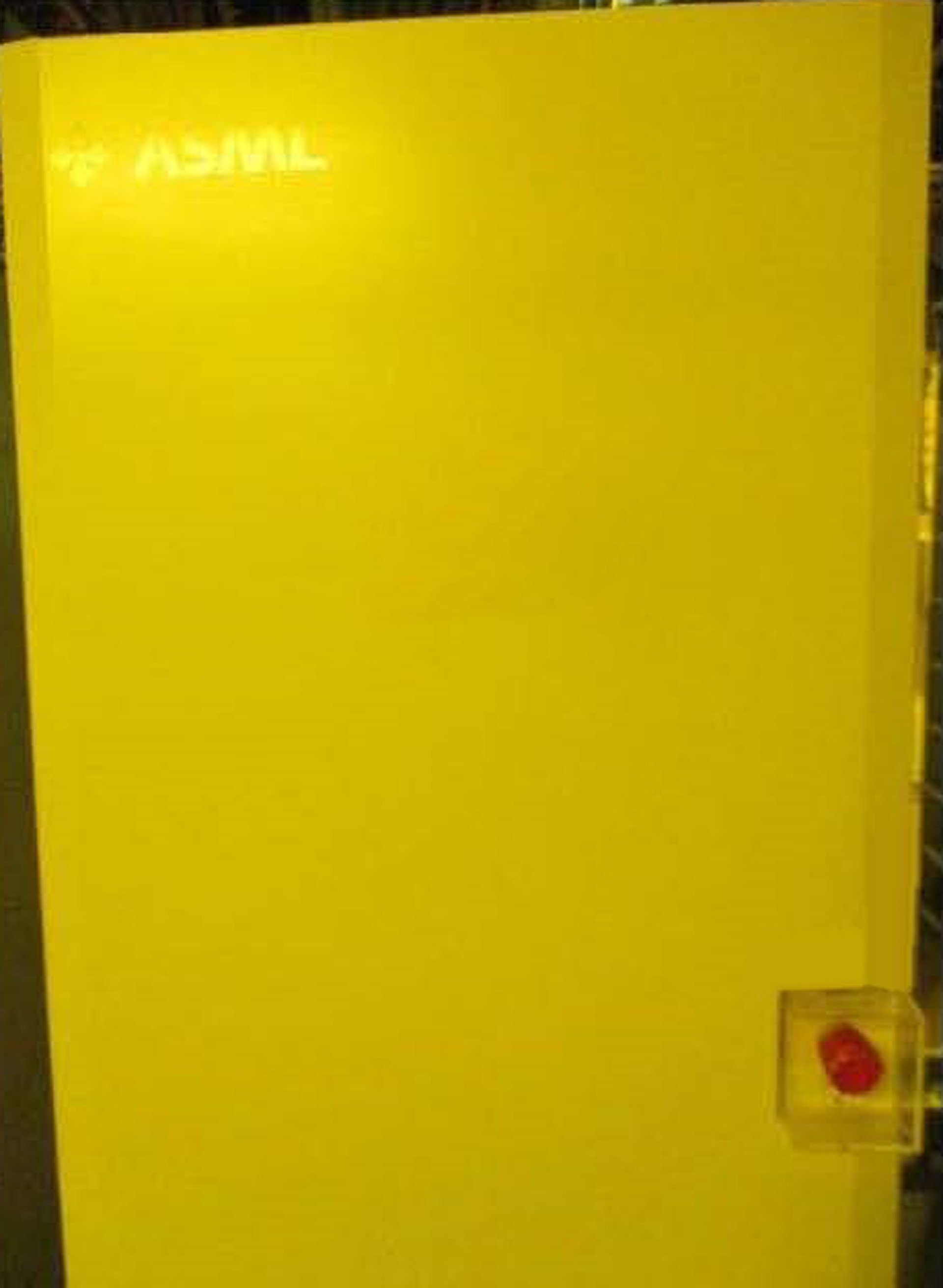

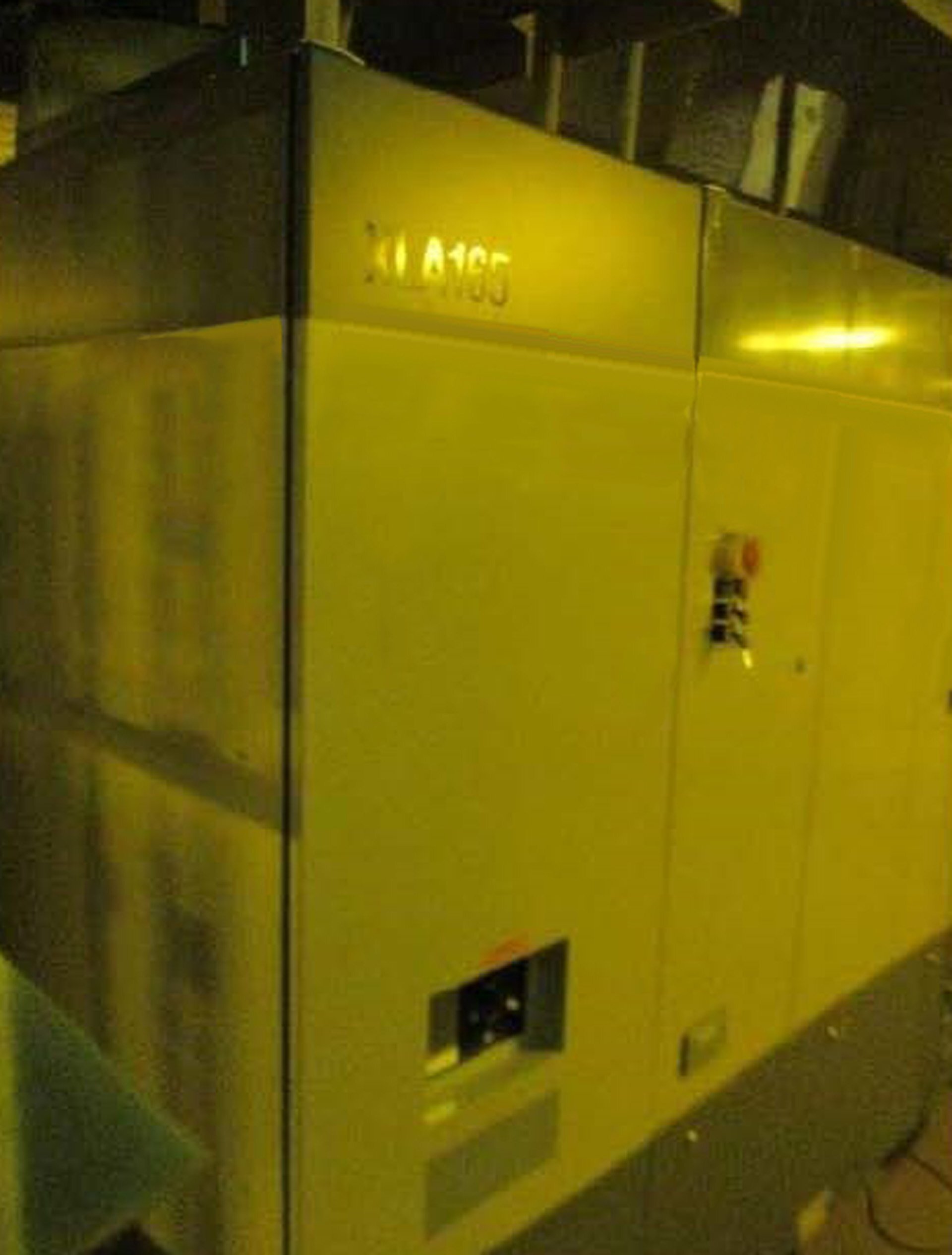

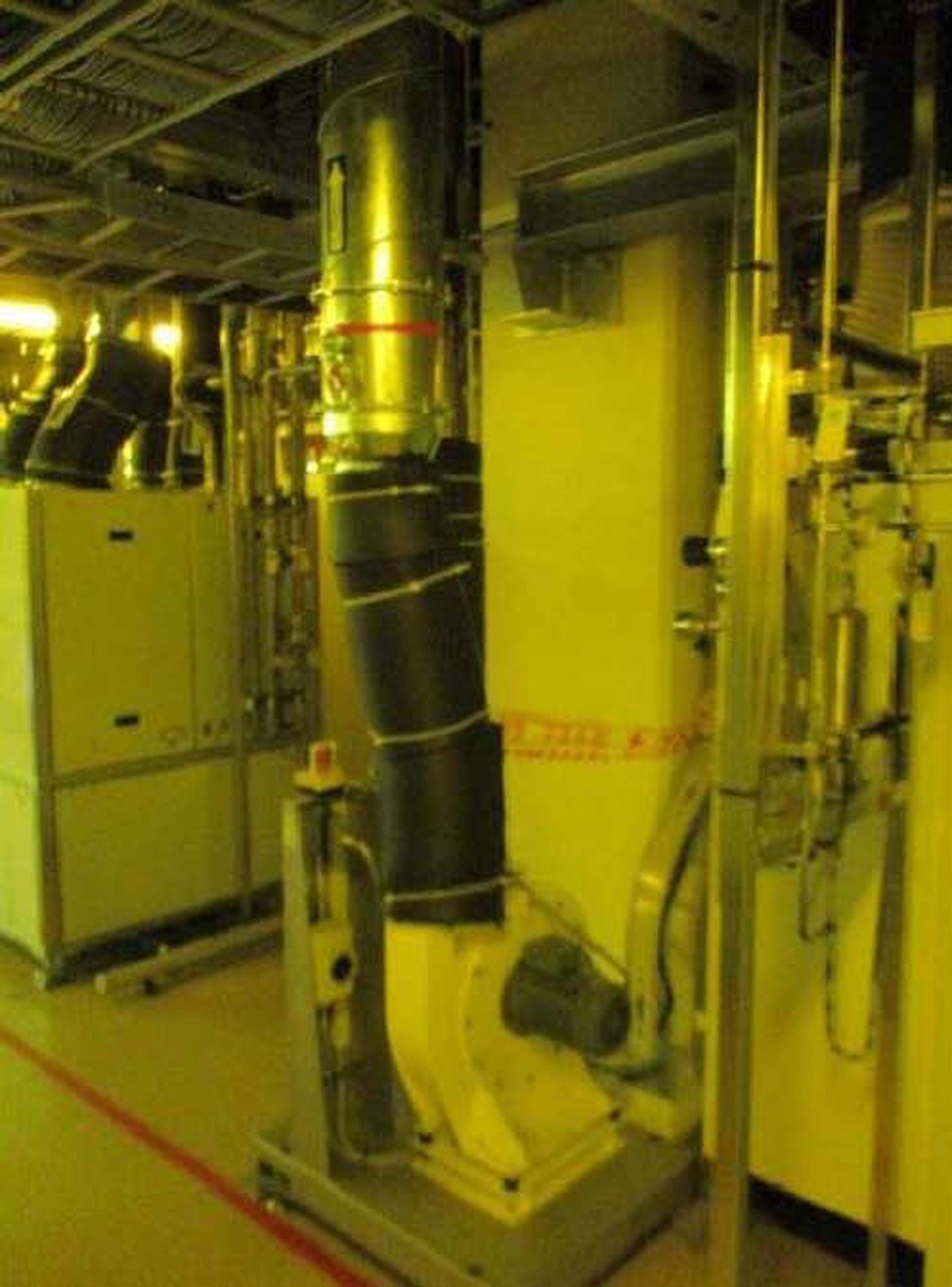

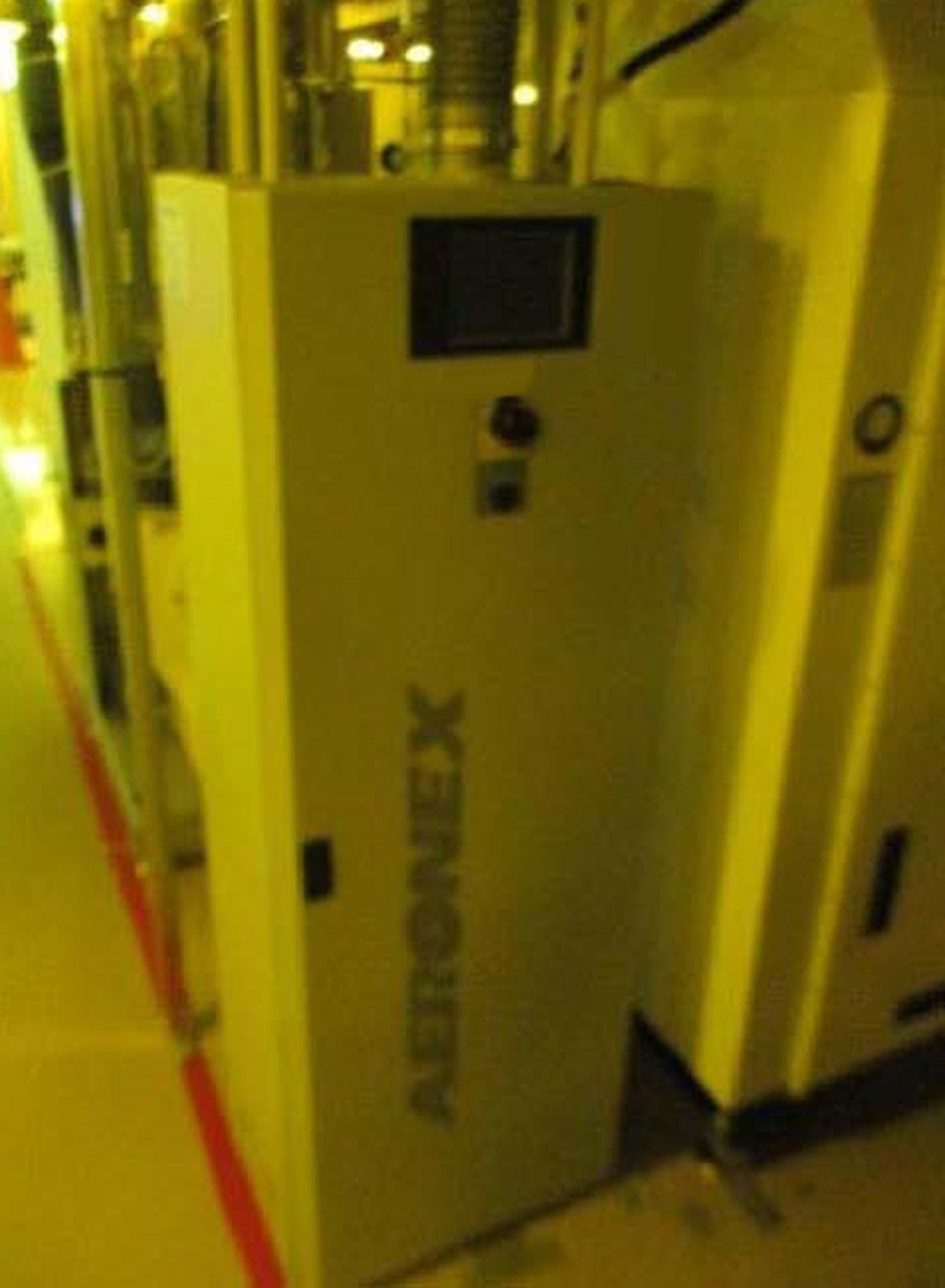

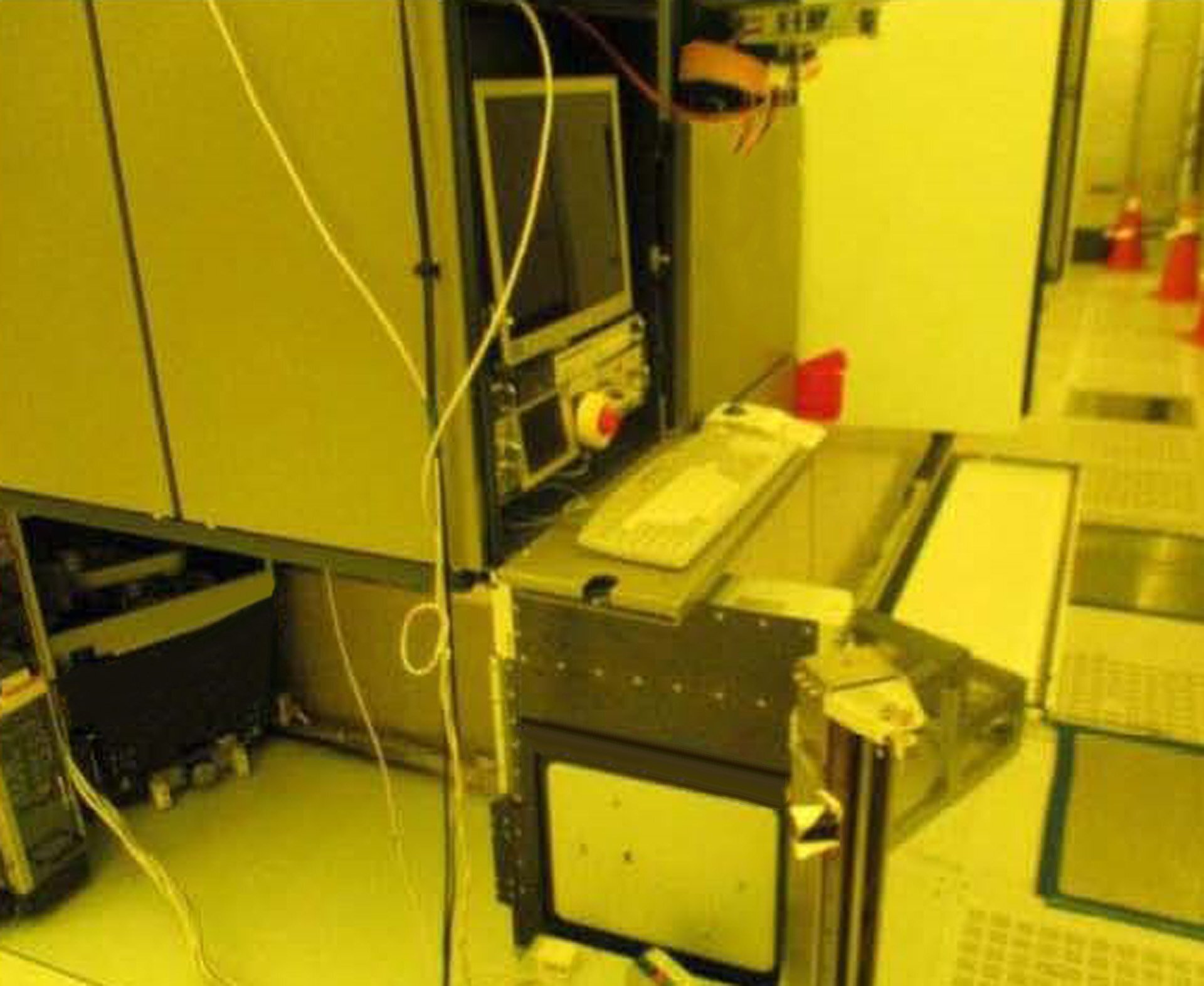

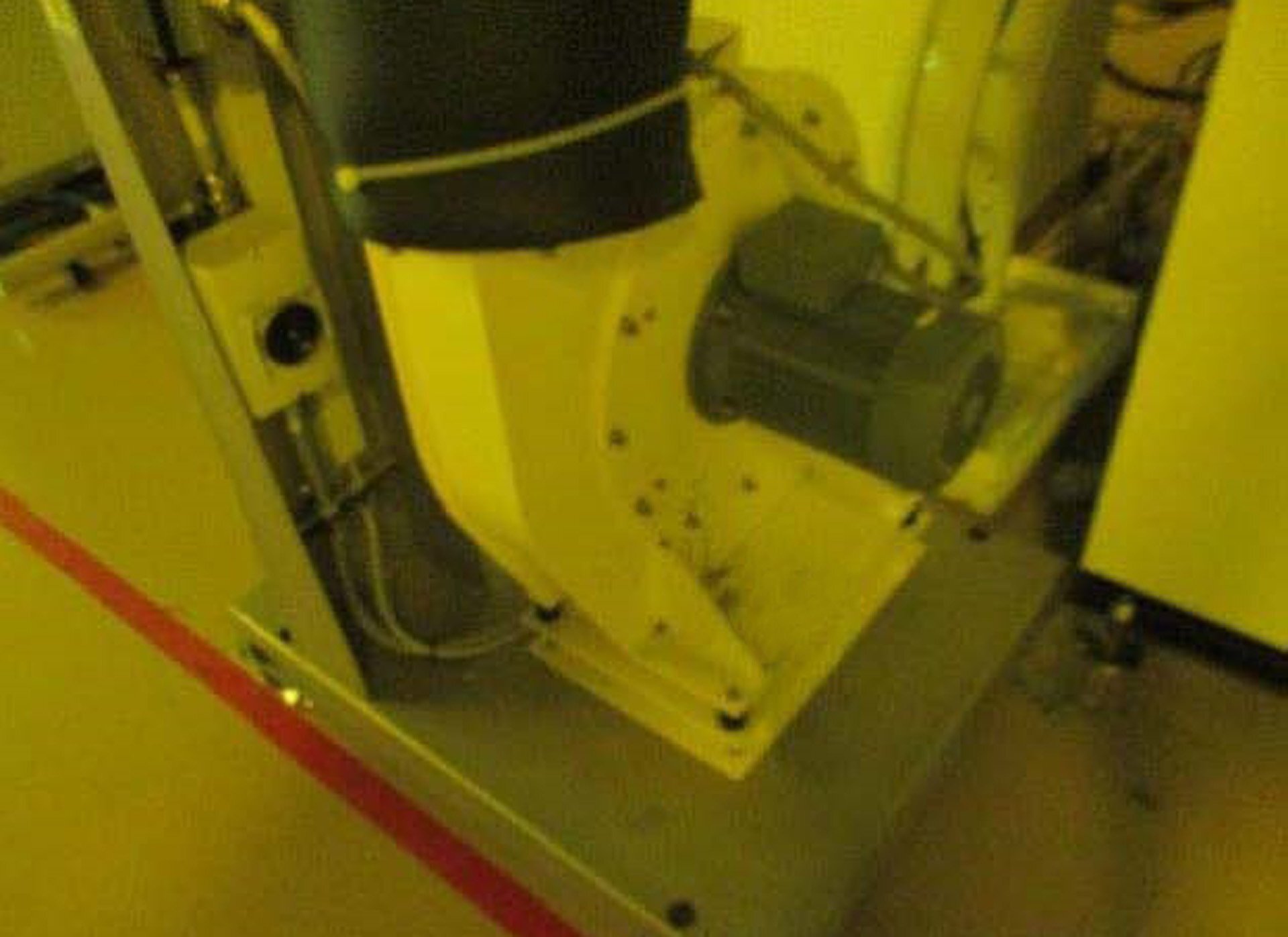

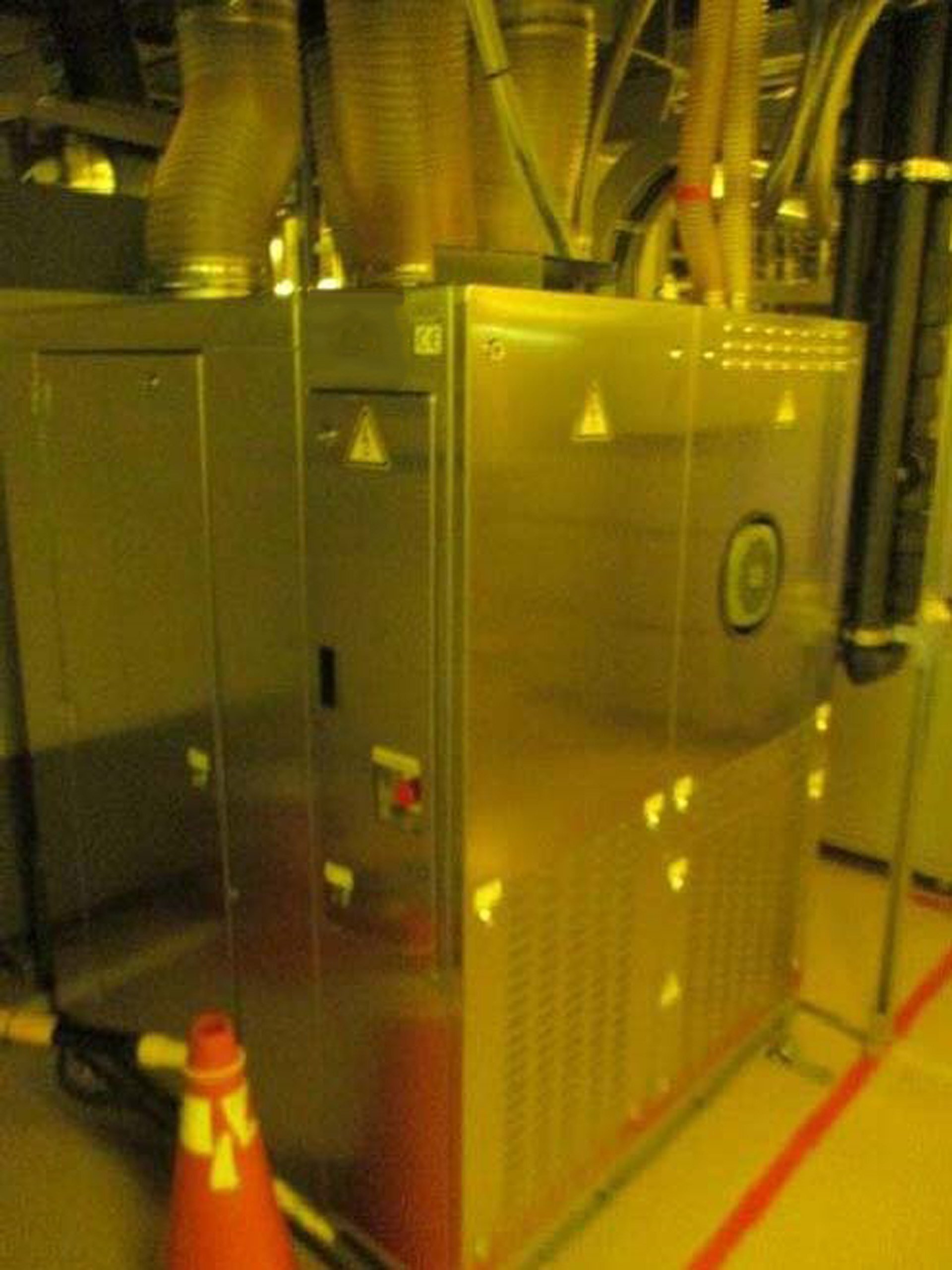

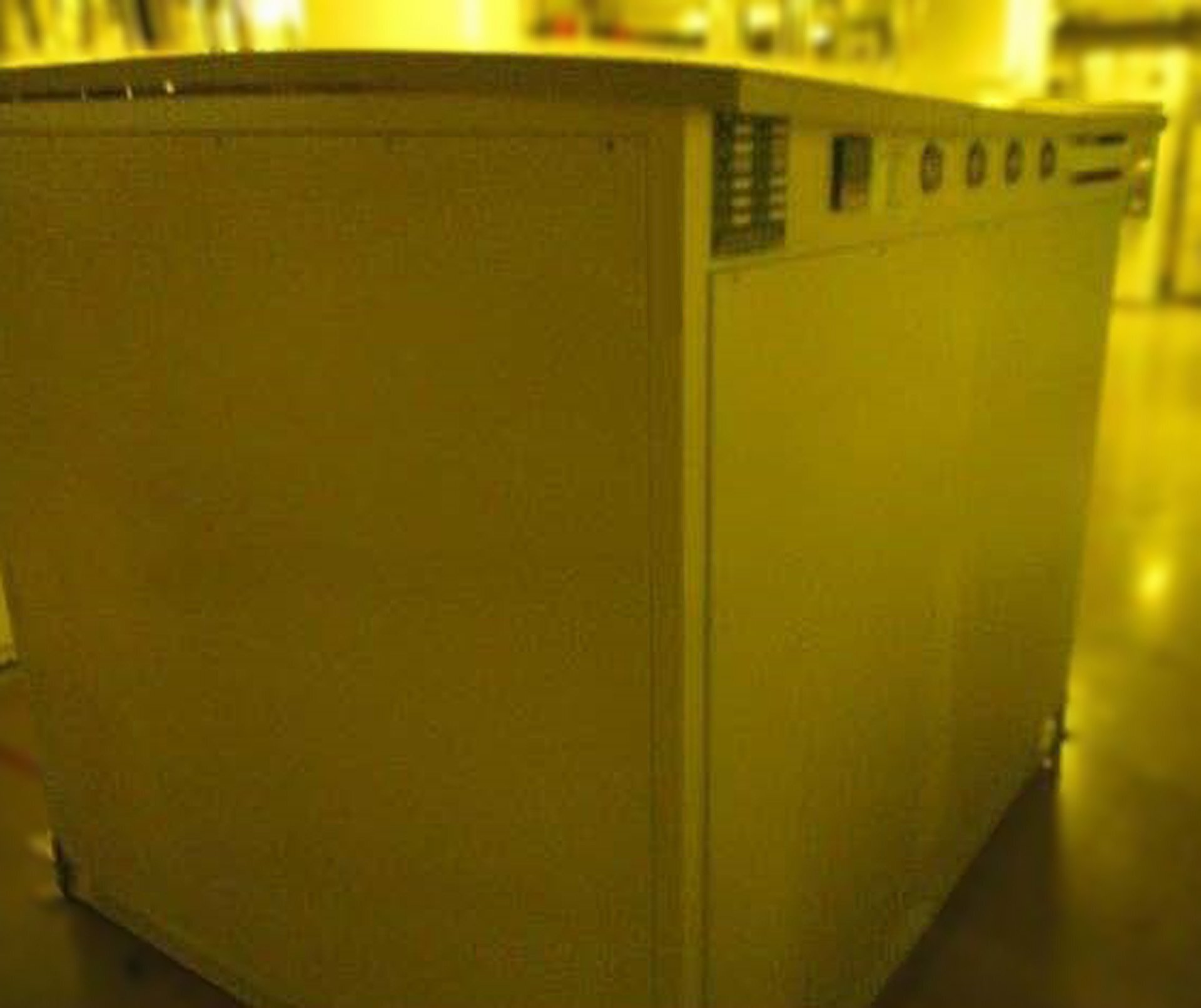

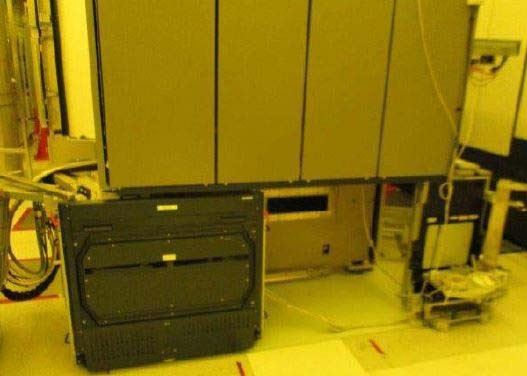

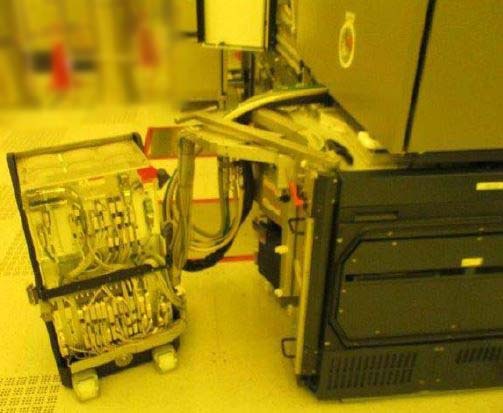

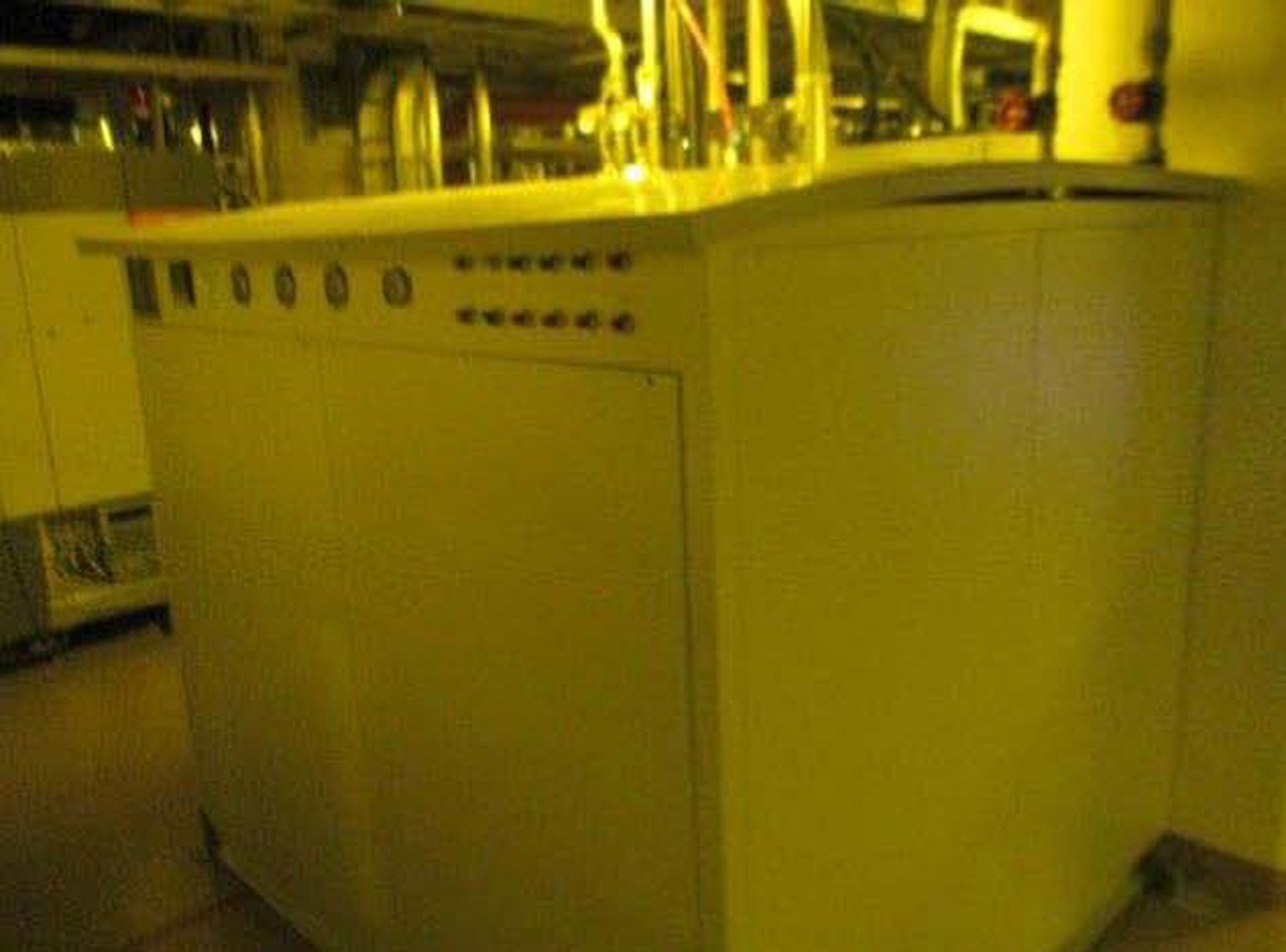

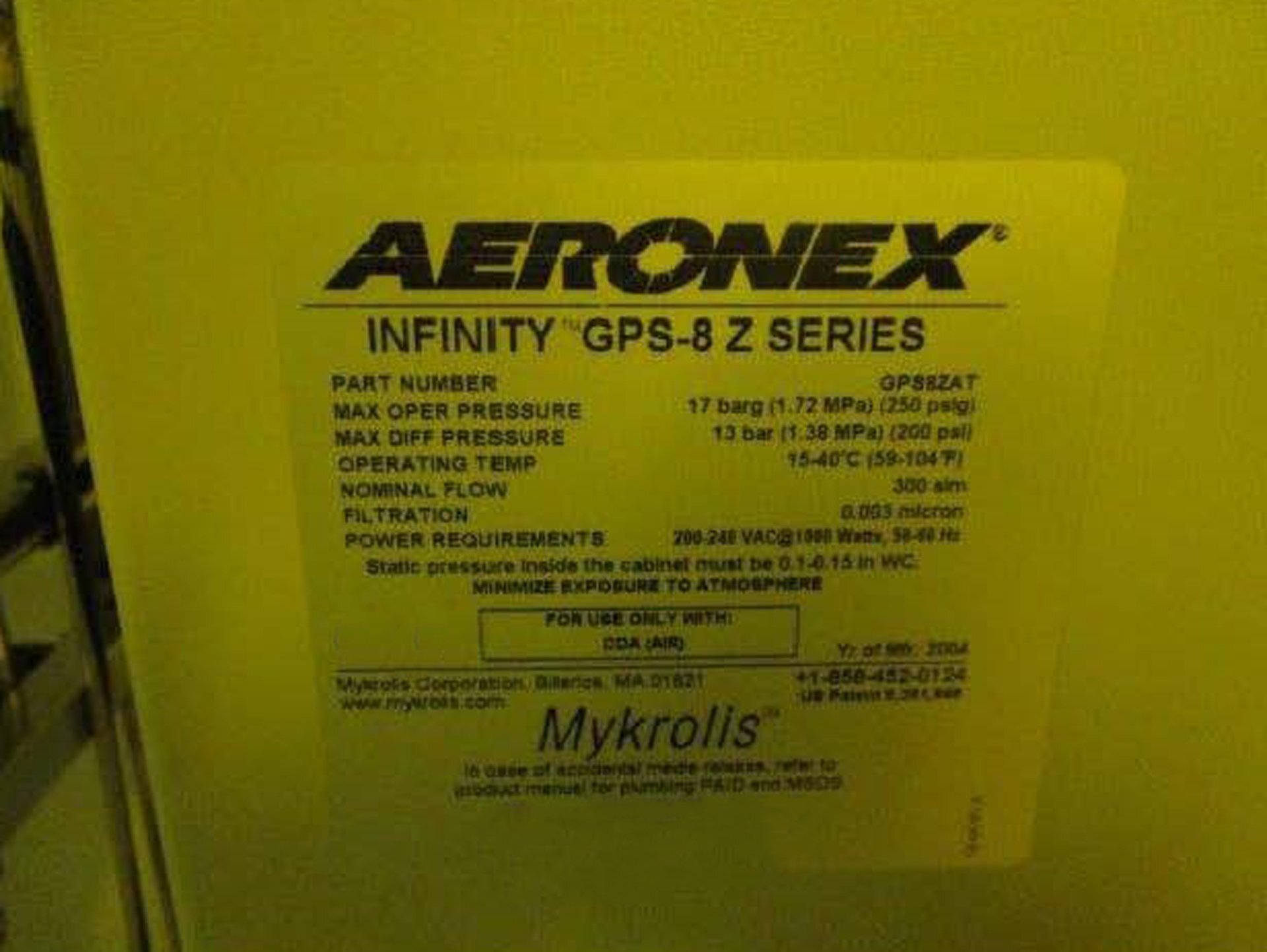

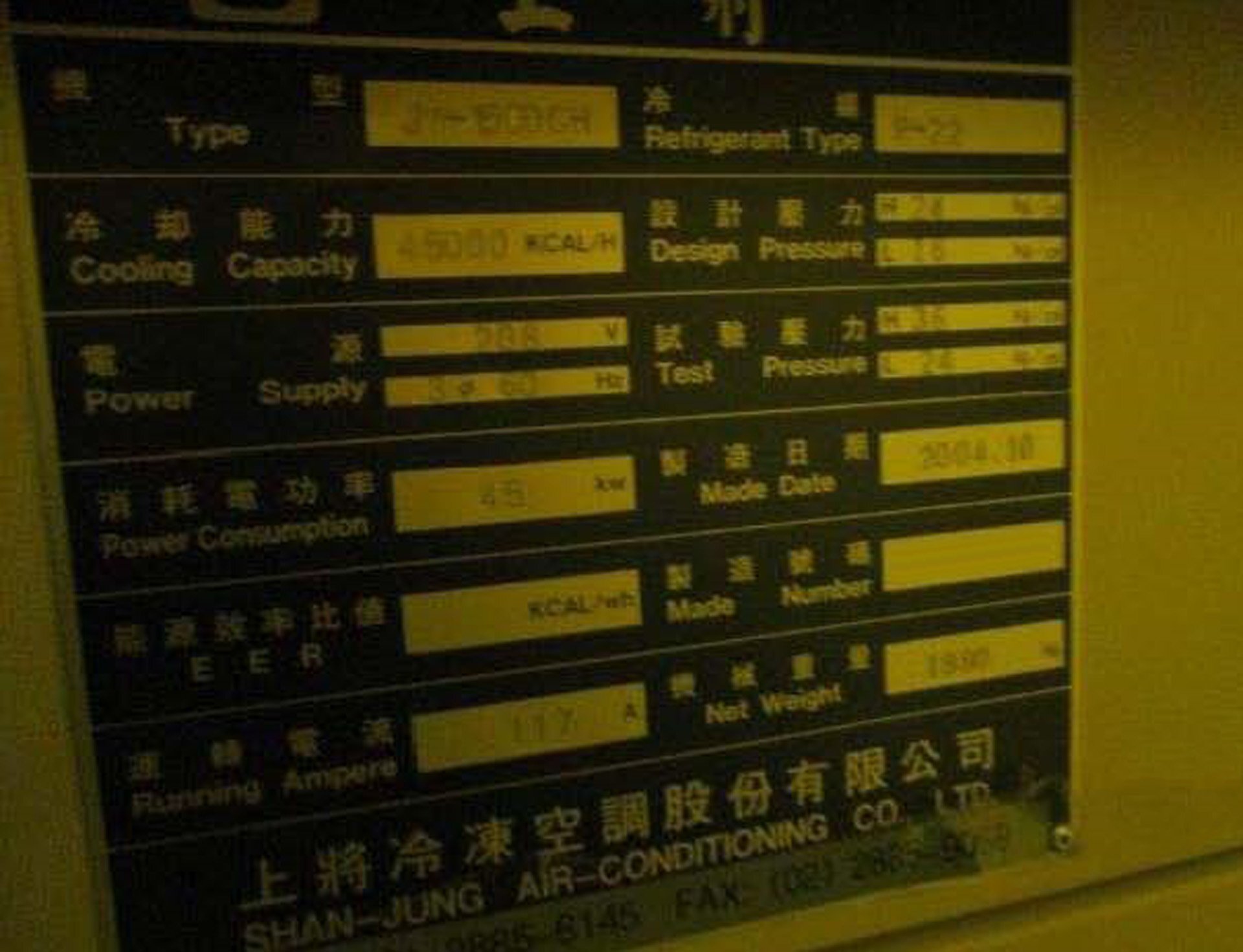

ID: 9228718
ウェーハサイズ: 12"
ヴィンテージ: 2004
ArF Scanner, 12"
Track pre-warning signal: APR
Input / Output conflicts: Avoid track
Type of wafer table on chuck 1 and 2: Zerodur
Wafer stage: Type 2
Wafer carrier: Right
(25) Wafers per carriers
Wafer stage types: Dual chuck
Lower docking plates
WS Balance mass: Stainless steel
WH Robot power amplifier: CPM 20
Wafer stage fast stiff X move electronics
Wafer stage mirror block down electronics
Interferometer axis version at exposure: 3 Plus, 1 Axis
Wafer handling pneumatic
Chuck 1 and 2, 12"
Docking wheels at WH unload
Docking plate height: Low
Carrier handler type: Mark I 300 FOUP
Wafer handling load: Double fold arms
Unload robot type: Z Stroke, 12 mm
Wafer handler WRT BF shifted in Z
Encoders measurement system: Hall sensors for zeroing
Reticle stage chuck type: Glued leaf spring
Type 2: Glued LS, Pneumatic GC, IFM / ENC
Reticle carrier: Right
Integrated reticle inspection system: PPD1 With IRIS1
Integrated reticle library: IRL
Reticle, 6"
Reticle carrier tag reader
Reticle stage long stroke motor type: Cobalt ferro 18 teeth
No closing disk
No enhancements in reticle monitor
Reticle stage long stroke config: Type 3
CoFe-18 Motor
SB Controller
Vacuum supply
Pneum GC
Reticle stage: Lens cooler box with anti-aliasing filter
Maximum reticle ID length: 24 Characters
Reticle stage measurement system on scan: HEIDENHAIN Encoder
RS Object field
Reticle exchange type: Retex E option
Reticle handler
Dynamic performance calculation: Mark 1
Stages sample rate: 5.0 kHz
Interferometer electronics
Capacitive Z-height sensor type: Dual Z sensor board
IFM Config at measure side: 8-Axes
Dose system: Test sequence 1
Depolarizer type: Fixed
Pupil qualification method: Center of gravity method
Unpolarized illumination amorph DOE
Validity range: Exact matching for UIP data
Active element: ALE
BMU Reading: DOE1 Plane
Lens type: 12
Light-source architecture: Laser
Light-source wave-length: 193 nm
Dose mapper
REMA Architecture: REMA C
Illuminator type: 120
AXICON Zoom architecture: ZZA / 120
Automated DOE exchanger / Architecture: 5 Slots MIP control
UNICOM / Architecture: Motor
Imaging electronics architecture: B Architecture
Attenuator type
Test table Z-axis: Worm wheel
PUPICOM / Architecture: DC Motor with gearbox
(5) Z Lens manipulators
Active lens element
Active element
(4) Semi-active X-Y lens manipulators
Setup sensor board
Imaging generic power amplifier
Imaging control rack configuration
Projection multiplexer board
LEC Rack in electronic architecture
Projection GPA configuration
(5) Lens NEXZ Manipulators
Spot sensor surface coating: Bilatal
Energy sensor: VLOC
Spot sensor chuck 1 and 2: VLOC
Uniformity improvement package
Pupil measurements with ILIAS
Beam control: Beam adjustment
Extended spot sensor match
(5) Rxms / (5) Ryms
Exchangeable last lens element
UV Shutter
Dose control hardware: ISB
Illuminator platform: Aerial 2
Test table architecture: Aerial 2
Illumination mode
DUV Light source power level: 45 Watt
Lens top tool connection
Scanning energy sensor calibration
Position of spot sensor on chuck 1 and 2: Layout 1
Z-Capture for low reflectivity wafer
Circuit dependent FEC
Focus monitoring
LS Focus node 3
Level sensor processing rack (LCSR)
LS PEMM Config
LS CPU Config: (3) CPUs
Recipe creator: Light
Report data category: Enhanced diagnostic
CDC
Proximity matching
MBDS Control
Enhanced exposure 1
XML report content level: Basic
Mark type: ASML Mark
Alignment laser configuration: (2) Color laser
Boards: ODB With ADB
Athena narrow marks Twinscan
Alignment sensor types: Athena narrow marks OM
Athena focus improvement 1
Maximum alignment speed: Setting 2
AACR Processing rack
Purging configuration 3
LCW Circuit set-ups
Clean air configuration
CT Miscellaneous rack
Clean air temperature controls: Driver and ACC
Purge hoods configuration: Compressed clean air and extremely clean dry air
Metro frame type: Type 1
Inlet restriction for clean air: Inlet restriction at right side
Reticle stage purged mini environment
Gas control unit type: High Flow (HF)
Lens circuit water flow: High
Motor circuit water flows
IFM Laser configuration: AOM Re-combo laser
Position control rack configuration: Rack configuration type 3
Position control power rack configuration type 3: Stages power rack upto E-spec
(5) Motion controllers
Position and motion control rack
Reticle stage short stroke X/Y11/Y12/Y21/Y22/Y11/Y11 amp: PADC 100 V / 16 A
Wafer stage short stroke 1 and 2 XY1/ XY2/XY3 amp: PADC 100 V / 16 A
Reticle stage short stroke Z1/Z2/Z3 amp: Pass low current 8.5 A
Wafer stage short stroke 1 and 2 Z1/Z2/Z3 amp: Pass low current 8.5 A
Reticle stage long stroke Y11/Y12/Y21/Y22 amp: 450 V, 20 A PAAC
Reticle balance mass 1/2 amp: 450 V, 20 A PAAC AT-pepD
Wafer stage long stroke E/M X amp: 400 V, 16 A PAAC AT-D
Wafer stage long stroke E and M Y1/Y2/CS amp: 400 V, 16 A PAAC AT-D
Wafer stage balance mass 11/12/21/22 amp: 325 V, 14 A PAAC AT-C
Pressure update rate: 2 Hz / 4 Hz
PEP Image streaming
Overhead reductions: LOR2
SMASH Reuse capture information in stage alignment
Wafer plane deviation check with focus monitoring
Wafer reject mode
Lens heating history in LH feed forwards
2D Grid correction
Ast offset correction in TIS LHFB/LOCO (Version 3)
NEXZ-Tilt per exposure
Projection lens: No off-axis slit
Enhanced throughput reticle alignment
Adjustable wavelength
Alignment report encryption
Stage alignment filter
Lot correction sequence: Type B
Lens heating feedback and calibration
Layout version number: TIS Plate 1 and 2 on chuck 1/2
Wavelength / Energy sensor
AM Controller hardware: SUCR
Lens heating
No polarization shaping element retractor hardware
No air gauge device
No leveling throughput improvement on measure side
Litho guide:
SAMOS Stray light test
PUPIL Measurement
FOCAL Measurement
Leveling verification test
ILIAS Sensor: Chuck 2
ILIAS Sensor type chuck 2: Multiple scan grid
SASO Robustness and fiber connectivity
Patch strategy: Patch level
Chuck
ZERO Fiducial: ILIAS MK2
XT Machine architecture
XT Architecture revision: Rev 1
No exchangeable pupil lens element
No sigma calibration
No sigma WIP preserving offset
CDC
Wafer handler productivity: Level 0
Does not include Hard Disk Drive (HDD)
2004 vintage.
ASML Twinscan XT 1250Dは、マイクロエレクトロニクス業界にリソグラフィーサービスを提供するように設計された高度なウェハステッパーです。これは、オランダのメーカーASMLによって設計され、構築されています。ASML TWINSCAN XT:1250Dは、従来のステップアンドスキャン技術と高度なステップアンドスキャン技術の両方を実行することができます。1250mmのスキャンフィールドサイズを備えているため、ゲート、フィン、ビア、深穴トレンチなどの大小の構造物を10:1のアスペクト比で素早く正確にパターン化できます。XT 1250Dのリソグラフィーエンジンは、ASMLが開発した262Wソリッドステートレーザーによって駆動され、大きな基板上に高解像度の画像を印刷することができます。11nm〜13。3nmの波長のEUVスペクトル範囲で動作し、さまざまなデバイスタイプを印刷するための汎用性を提供します。このシステムは、最大20ナノメートルの解像度でパターンを露出することができます。このユニットは、ナノメートルスケールの精度や静的または動的な登録技術など、さまざまなオーバーレイ技術をサポートしています。特許取得済みの「超高精度」ポジショナーを搭載しており、ユーザーはフィールド全体の基板またはレイヤーを正確に揃えることができます。さらに、オートフォーカスツールを備えており、常に最高のイメージング性能を保証します。TWINSCAN XT 1250 Dは低メンテナンス向けに設計されており、ソフトウェア制御のメンテナンスルーチンだけでなく、問題を簡単に検出して修正するための多数の組み込みツールと診断機能を備えています。また、リモートサービスオプションを提供しており、ユーザーは安全な接続を介して資産と通信することができます。Twinscan XT 1250Dは、さまざまな業界のリソグラフィ用途において比類のない性能、精度、汎用性を提供します。これは、高品質のマイクロエレクトロニクス部品を量産するための理想的なツールです。
まだレビューはありません
